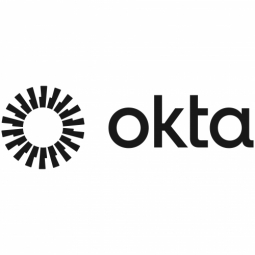Customer Company Size
Large Corporate
Region
- Europe
Country
- Turkey
- United Kingdom
Product
- Workforce Identity Cloud
- Okta Single Sign-On
- Adaptive Multi-Factor Authentication
- Universal Directory
Tech Stack
- SAP Hybris
- Salesforce
- MuleSoft
- SuccessFactors
- Active Directory
Implementation Scale
- Enterprise-wide Deployment
Impact Metrics
- Productivity Improvements
- Customer Satisfaction
- Employee Satisfaction
Technology Category
- Cybersecurity & Privacy - Identity & Authentication Management
- Platform as a Service (PaaS) - Connectivity Platforms
- Application Infrastructure & Middleware - API Integration & Management
Applicable Industries
- Consumer Goods
- Electronics
Applicable Functions
- Business Operation
- Sales & Marketing
Services
- Cloud Planning, Design & Implementation Services
- Cybersecurity Services
- System Integration
About The Customer
Arçelik, a leading manufacturer of household appliances and consumer electronics, was founded in Istanbul in 1955. The company has become a household name in Turkey, with 15 out of 17 million households owning at least one Arçelik-made product. Arçelik operates in over 140 countries under 12 different brands, including Beko, Grundig, and Blomberg. As Europe's second-largest white goods company by market share, Arçelik achieved a consolidated turnover of 5 billion Euros in 2019. The company employs over 30,000 people across 23 production facilities in 9 countries and has a strong focus on research and development, holding more than 3,000 international patent applications.
The Challenge
Arçelik faced challenges in managing a vast B2B and B2E user base, along with 106,000 B2C customer accounts. The company relied on multiple solutions for user authentication, which became cumbersome as they adopted more cloud applications. The lack of a centralized directory led to manual management of user accounts, and new features like social logins were difficult to implement across different applications. Arçelik needed a solution that could simplify user management, improve customer experience, and support their digitalization strategy.
The Solution
Arçelik transitioned from its legacy on-premises identity solutions to Okta, implementing a centralized identity and access management (IAM) system. This move was part of their digitalization strategy to merge disparate customer channels into an omni-channel solution. Okta's predefined connectors and support for social logins facilitated the integration of new cloud applications like SAP Hybris, Salesforce, and MuleSoft. The implementation of Okta's Single Sign-On and Universal Directory allowed Arçelik to manage all B2B, B2C, and B2E users in one place, simplifying user management and reducing IT workload. Additionally, Arçelik rolled out Adaptive Multi-Factor Authentication to enhance security without compromising ease of use.
Operational Impact
Quantitative Benefit

Case Study missing?
Start adding your own!
Register with your work email and create a new case study profile for your business.
Related Case Studies.
.png)
Case Study
Improving Vending Machine Profitability with the Internet of Things (IoT)
The vending industry is undergoing a sea change, taking advantage of new technologies to go beyond just delivering snacks to creating a new retail location. Intelligent vending machines can be found in many public locations as well as company facilities, selling different types of goods and services, including even computer accessories, gold bars, tickets, and office supplies. With increasing sophistication, they may also provide time- and location-based data pertaining to sales, inventory, and customer preferences. But at the end of the day, vending machine operators know greater profitability is driven by higher sales and lower operating costs.

Case Study
Remote Temperature Monitoring of Perishable Goods Saves Money
RMONI was facing temperature monitoring challenges in a cold chain business. A cold chain must be established and maintained to ensure goods have been properly refrigerated during every step of the process, making temperature monitoring a critical business function. Manual registration practice can be very costly, labor intensive and prone to mistakes.

Case Study
Series Production with Lot-size-1 Flexibility
Nobilia manufactures customized fitted kitchens with a lot size of 1. They require maximum transparency of tracking design data and individual processing steps so that they can locate a particular piece of kitchen furniture in the sequence of processes.










